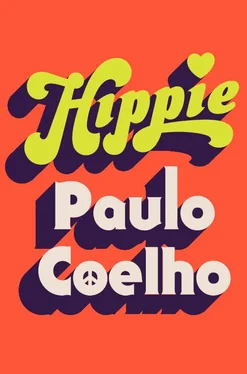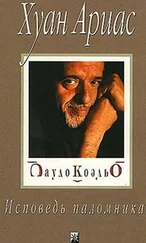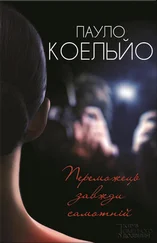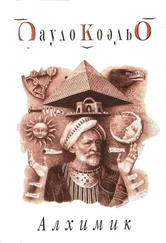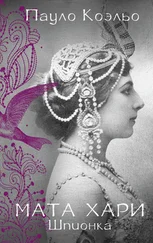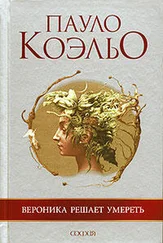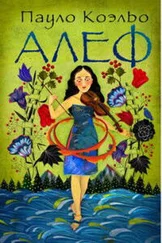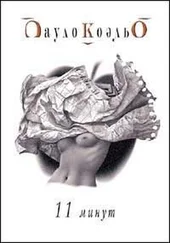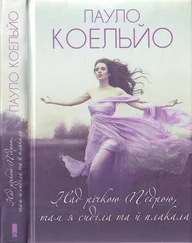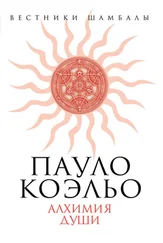He got up, walked around the table, and kissed her, knowing it was against the local custom, that the owners might be offended—despite this, he kissed her with love and not lust, with pleasure and not guilt, because he knew that it would be their last kiss.
—
He didn’t want to ruin the magic of the moment, but he needed to ask all the same.
“Were you expecting that? Were you prepared for that?”
Karla didn’t respond, merely smiled, and he would never know her response—and that was true love, a question for which there is no answer.
He made a point of walking her to the bus. He’d already advised the driver that he was staying behind, to learn what he needed to learn. For a brief moment, he thought to repeat the famous line from Casablanca, “We’ll always have Paris.” But he knew it was a silly idea, and he needed to hurry back to the green room and the teacher without a name.
The people on the bus pretended not to see anything. No one said goodbye to him because no one—besides the driver—knew this was the last stop on his journey.
Karla hugged him without a word but could feel his love as though it were something physical, a light growing more intense, as though the morning sun were rising and shining first across the mountains, then the cities, then the plains, then the sea.
The door closed and the bus took off. More than one person could be heard exclaiming, “Hey, you left the Brazilian guy behind!” But the bus had already pulled away.
One day he would meet Karla again and ask about the rest of her journey.
In February 2005, when he was already a world-famous writer, Paulo went to Amsterdam to give an important talk. On the morning of the talk, he was interviewed on one of Holland’s principal TV shows at his old hostel—since converted into a hotel for nonsmokers, expensive and with a small but well-regarded high-end restaurant.
He never again heard from Karla. The guide Europe on 5 Dollars a Day had become Europe on 30 Dollars a Day. Paradiso had closed (it would reopen a few years later, retaining its identity as a concert venue); Dam Square was deserted, it was merely a square with that mysterious obelisk in the middle, whose purpose he’d never known—and which he would prefer never to know.
He felt the temptation to walk through the streets where they’d walked to reach the restaurant where they’d eaten for free, but there was always someone with him—the person who had organized the talk. He thought it better to return to his hotel and prepare what he was to say that evening.
He had a vague hope that Karla, knowing he was in the city, would show up to meet him. He imagined she hadn’t spent much time in Nepal, just as he’d abandoned the idea of becoming a Sufi, though he’d lasted nearly a year and learned things he would carry with him for the rest of his life.
During the conference, he told part of the story found in this book. At a certain point, he couldn’t help it and asked:
“Karla, are you here?”
No one raised a hand. Perhaps she had been there, perhaps she hadn’t even heard that he would be visiting the city, or perhaps she was there but preferred not to relive the past.
Better that way.
Geneva, February 3, 2018
Author’s Note and Acknowledgments
All of the characters in this book are real but—with the exception of two—had their names changed due to the complete impossibility of finding them (I knew them only by their first names).
I took the episode from the prison at Ponta Grossa (in 1968) and added details from two others to which I was subjected during the military dictatorship (in May 1974, when I was working as a songwriter).
I would like to thank my editor, Matinas Suzuki, Jr.; my agent and friend, Monica Antunes; and my wife, the visual artist Christina Oiticica (who drew the map of the complete Magic Bus route). When I write a book, I lock myself in and practically speak to no one, and I don’t like to talk about what I’m writing. Christina pretends not to know, and I pretend to believe that she doesn’t know.
Paulo Coelho’s life remains the primary source of inspiration for his books. He has flirted with death, escaped madness, dallied with drugs, withstood torture, experimented with magic and alchemy, studied philosophy and religion, read voraciously, lost and recovered his faith, and experienced the pain and pleasure of love. In searching for his own place in the world, he has discovered answers for the challenges that everyone faces. He believes that, within ourselves, we have the necessary strength to find our own destiny.
His books have been translated into 81 languages and have sold more than 225 million copies in more than 170 countries. His 1988 novel, The Alchemist, has sold more than 85 million copies and has been cited as an inspiration by people as diverse as Malala Yousafzai and Pharrell Williams.
He is a member of the Brazilian Academy of Letters and has received the Chevalier de l’Ordre National de la Légion d’Honneur. In 2007, he was named a United Nations Messenger of Peace.
A NOTE ABOUT THE TRANSLATOR
Eric M. B. Becker is the editor of Words without Borders and the translator of numerous writers from the Portuguese. He is the recipient of grants and fellowships from the PEN American Center, the Fulbright Commission, and the National Endowment for the Arts.
The Alchemist
The Pilgrimage
The Valkyries
By the River Piedra I Sat Down and Wept
The Fifth Mountain
Veronika Decides to Die
Warrior of the Light: A Manual
Eleven Minutes
The Zahir
The Devil and Miss Prym
The Witch of Portobello
Brida
The Winner Stands Alone
Aleph
Manuscript Found in Accra
Adultery
The Spy

What’s next on your reading list?
Discover your next great read!
______
Get personalized book picks and up-to-date news about this author.
Sign up now.
THIS IS A BORZOI BOOK
PUBLISHED BY ALFRED A. KNOPF
Translation Copyright © 2018 by Eric M. B. Becker
All rights reserved. Published in the United States by Alfred A. Knopf, a division of Penguin Random House LLC, New York, and distributed in Canada by Random House of Canada, a division of Penguin Random House Canada Limited, Toronto. Originally published in Brazil as Hippie by Editora Paralela, a division of Editora Schwarcz S.A., São Paulo, in 2018. Copyright © 2018 by Paulo Coelho. This edition published by arrangement of Sant Jordi Asociados Agencia Literaria SLU, Barcelona, Spain.
www.aaknopf.com
Knopf, Borzoi Books, and the colophon are registered trademarks of Penguin Random House LLC.
Library of Congress Cataloging in Publication Data
Names: Coelho, Paulo, author. | Becker, Eric M. B., translator.
Title: Hippie / Paulo Coelho ; translated by Eric M. B. Becker.
Other titles: Hippie. English
Description: First edition. | New York : Alfred A. Knopf, 2018.
Читать дальше
